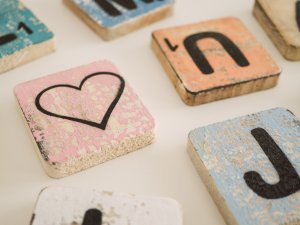Coulrophobia: The Fear of Clowns
Author: Brian Bowman
Date Published: 14 September 2023
In the realm of human emotions, fear can be both rational and irrational. While some fears arise from tangible threats, others stem from deep-rooted anxieties triggered by seemingly harmless entities. Coulrophobia, the fear of clowns, falls into the latter category. In this blog post, we will unmask the intriguing phenomenon of coulrophobia, exploring its origins, its impact on individuals, and the fascinating psychology behind this peculiar fear.

Understanding Coulrophobia
A Fear with a Long History
Coulrophobia is not a modern-day phenomenon; it has historical roots that can be traced back centuries. Clown-like characters have been depicted in various cultures throughout history, and their portrayal has often been associated with mischief, deception, or even malevolence.
The "Uncanny Valley" Effect
Coulrophobia is often linked to the "uncanny valley" effect, a psychological concept that refers to the discomfort experienced when encountering something that appears human but falls short in certain aspects, creating an unsettling feeling.
Unraveling the Psychology
Disguise and Unpredictability
Clowns often wear exaggerated makeup and costumes, obscuring their true identities. The unpredictability of their behavior, meant to entertain, can inadvertently trigger anxiety in those with coulrophobia.
Associations with Negative Stereotypes
Popular culture has sometimes portrayed clowns as creepy or sinister characters in movies and literature. These negative associations can further reinforce coulrophobia in susceptible individuals.
Impact on Individuals
Physical and Emotional Reactions
For those with coulrophobia, encounters with clowns can evoke a range of physical and emotional responses, including anxiety, rapid heartbeat, sweating, trembling, and an overwhelming desire to flee the situation.
Impact on Daily Life
Coulrophobia can impact an individual's social life, as events with clowns, such as birthday parties or circuses, might be avoided. In extreme cases, it can even hinder professional opportunities or limit travel to places where clowns might be present.
Coping Strategies and Treatment
Exposure Therapy
Exposure therapy, under the guidance of a trained therapist, is one of the most effective treatments for coulrophobia. Gradual exposure to clowns in a controlled environment can help individuals desensitize to their fear.
Cognitive Behavioral Therapy (CBT)
CBT can help individuals identify and challenge irrational thoughts and beliefs related to clowns, leading to a change in emotional responses over time.
A Diverse Spectrum of Reactions
Not Everyone Fears Clowns
It's important to recognize that coulrophobia is a specific phobia and not everyone experiences this fear. Some people may even find clowns endearing or entertaining.
Cultural Differences
Cultural factors can influence perceptions of clowns, with some cultures viewing them as symbols of happiness and joy, while others associate them with darker themes.
Conclusion
Coulrophobia is a fear that inhabits the minds of some individuals, adding to the diverse tapestry of human emotions. As we delve into the psychology behind this fear, we uncover the complex interplay between perception and emotion. Understanding coulrophobia helps us foster empathy and compassion for those who experience it, recognizing that each person's fears are valid and shaped by their unique experiences and perspectives. While coulrophobia may seem puzzling to some, it is a reminder of the intricacies of the human mind and the power of perception in shaping our emotions and responses.
